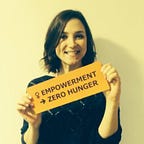Uprooted Libyan family finds community around the dinner table
With the support of donors including the European Commission’s Humanitarian Aid and Civil Protection department (ECHO), the World Food Programme (WFP) provides food to families affected by conflict in Libya.
Khadeeja, a 77-year-old mother of four, thought she would spend the rest of her days in her hometown of Tawergha, in western Libya.
But in 2011, her husband was killed when the conflict in the country began in earnest and violent clashes broke out in their area. While she was trying to decide what to do after his death, Khadeeja’s neighbourhood was bombed and she and her children were forced to flee immediately.
Looking back
“If I had known what would come next, I would have taken the bread and meat off the table and taken it with me.”
“If only I had been given one more hour to take the things we needed the most. We had to leave our house while we were sitting down to lunch,” says Khadeeja of the day they fled Tawergha and slowly made their way to Tripoli, Libya’s capital city. “If I had known what would come next, I would have taken the bread and meat off the table and taken it with me.”
For the last six years, Khadeeja and her children have lived in Al Falah camp for internally displaced people in Tripoli, where the family survives on humanitarian assistance and cash from odd jobs that her sons are able to find.
A burden lifted
“There is very little money available,” Khadeeja explains, referring to the liquidity crisis in Libya caused by a failing bank system that severely hampers people’s access to cash and has led to much higher food prices.
“Even today, I would never be able to afford to buy the food we get from the World Food Programme. With this, I can feed my children, and I don’t have to use the little money we have on food. It is a big worry taken away.”
With the support of donors including the European Commission’s Humanitarian Aid and Civil Protection department (ECHO), WFP provides rations to families like Khadeeja’s. These boxes of food contain 12 kg of wheat flour, 15 kg of rice, 5 kg of chickpeas, 2 kg of sugar, 4 kg of vegetable oil and 2 kg of tomato paste. Each food ration lasts Khadeeja’s family one month and contains the ingredients she needs to cook family meals.
A sense of family
“We share what we receive. I live alone with my children, but very often, other widows will come and eat with us, or we will invite children from another family to share food. We all sit down together to eat. That is the rule in my house. It gives us, in this camp far from home, a sense of family.”
The humanitarian situation in Libya continues to deteriorate due to a conflict that has been running for six years, political instability, and the disruption of markets and local food production, all of which affect families’ livelihoods and their ability to meet basic needs. Thanks to donors like the EU, WFP has reached over 75,000 people in 2017, and continues to assist those who do not know where their next meal is coming from.
Learn more about WFP’s work in Libya.
